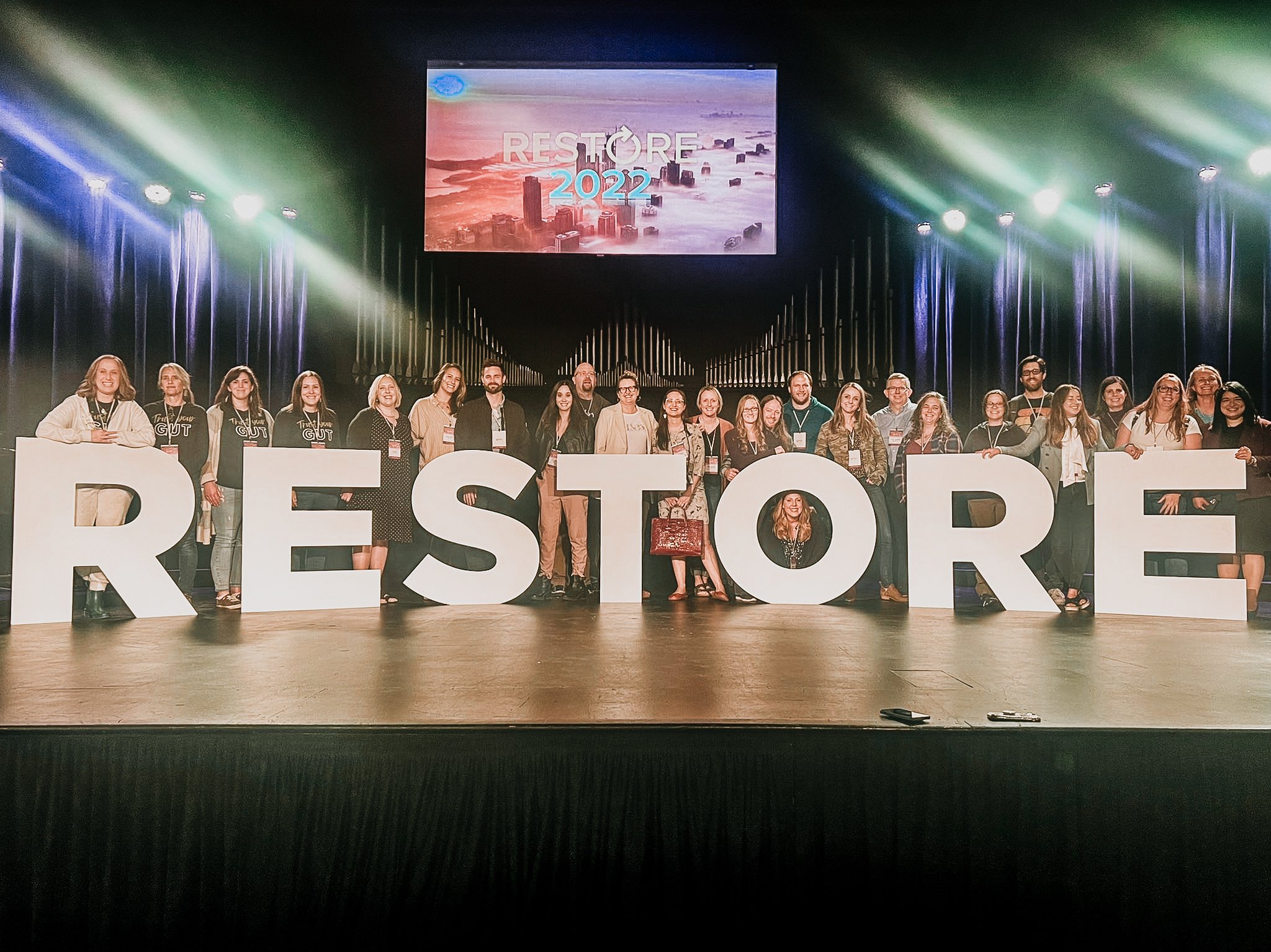Thoughts After Restore 2022
A couple weekends ago, I attended the second day of the Restore Conference outside of Chicago. I hadn’t really planned to go until I heard that some friends from Tears of Eden were attending, and I didn’t want to miss the opportunity to see them as they’ve been an important part of my healing this past year.
I will be honest: I was nervous about the conference though. I recognized many of the names on the speaker list, which told me that the conference would address spiritual abuse and other abuse in the Christian church, topics I’ve been researching and writing about for a few years now. But the tagline—“A Conference Restoring Faith in God and the Church”—didn’t quite resonate with me and my own journey after abuse.
For a long time, I was truly invested in bringing my experience and knowledge of abuse to help change the church at a local level. I shared my story, started speaking up about power hierarchies and abuse, and even wrote a resource for my church detailing what abuse can look like in a religious setting (note: the pastor only allowed me to share this resource after gaining my husband’s approval, which I now understand should have been a red flag).
I hoped that voicing my story would help make a culture change in how people in the church understood and addressed abuse within the congregation. I felt heard at first, especially by women who had experienced abuse themselves. My speaking up seemed to help them feel less alone, and I was even invited to speak at a women’s Bible study. But when it came to systemic change, nothing really happened, at least that I could see. I hope I planted seeds of understanding there, but I did not see any change in the leadership, preaching, or governance of the church in regards to how abuse was handled.
Maybe some would say I gave up on the church, but after a lifetime of seeing (and experiencing) abuse mishandled and dismissed in church after church, I no longer see myself having a place in American evangelicalism. Yes, my belief system has changed, too, but that was not the initial reason why I left.
So I don’t see restoration of the church as my goal any longer, which is why the Restore Conference wasn’t for me. And that’s okay . . . maybe.
The reason I agreed to join the editorial board for Tears of Eden was because the nonprofit supports survivors of spiritual abuse no matter where they end up on their healing journey. I may not be involved in restoring the church as an institution any longer, but I am very much invested in supporting other survivors and spreading awareness of church abuse. I want faith communities to be safer, and I also want survivors to find healing whether they are in or out of the church system, and whether or not they hold the same faith.
I don’t want to disparage the Restore Conference altogether because I believe a lot of people there found encouragement from the speakers as well as a sense of community. I especially appreciated Lori Anne Thompson sharing her insight; for years, her story has been an inspiration to me to keep going.
And I did feel safe with the other survivors I met; it is strange and wonderful to find common ground with other people when that common ground is a shared experience of religious trauma. It was very healing for me to be with other survivors, to share stories with each other, to feel seen and heard, to laugh after so much pain.
But for me, almost all of that positive experience happened in personal conversations rather than the conference presentations. Underlying much of the presentations was the idea that healing from spiritual abuse can only be found within evangelical Christianity. I know many survivors who have found healing in their faith, but not all of us do. I’m concerned that providing a space for healing with an evangelical agenda may not be the best way to support all survivors.
For someone like me, the environment of the conference was triggering. All the talks were held in a chapel, which on a sensory level felt overwhelming to me. When your abuse is so closely tied to church buildings, it is difficult to feel safe in them. I sat in the back and left whenever there was prayer or singing or communion. It was too much for me. I did appreciate Mary DeMuth saying at the beginning of the day that there would be triggering aspects to the conference and normalizing the idea that it’s okay to leave when you need to. But too much of the day felt like the institutional church rather than a conference, at least to me.
Another concern was the overall whiteness of the conference. Most of the speakers were white, and none were Black. It reminded me of most of my white evangelical experience—the church spaces I was in were generally white and Western-centric. But I know that the broader Christian church is much more diverse than that, and I think a conference on church abuse is missing a key to real change if they’re ignoring the underlying white supremacy and colonization of much of white American evangelical church culture.
I appreciate my friend Jenai Auman’s thoughts on racial marginalization in the church in her recent newsletter about the conference:
“If white Evangelicals are willing to diagnose and unveil the strategies used to kick people out of the church, are they equally willing to address the strategies often required to let people in? . . . I want there to be a day where I can show up with all of who I am. A day where leaders let BIPOC & post-Evangelical voices talk about the cost they have paid to gain admittance to a culture that continues to ostracize so many. We need leaders of color to unveil more of the truth.”
I couldn’t agree more.
I’m thankful that more people are talking about church abuse, that there’s even a conference openly addressing it. But there’s more work to be done if we are to address the core issues of church abuse, which in my opinion include sexism, racism, and homophobia. I don’t think we can truly isolate the topic of abuse without addressing these larger problems that create environments where abuse thrives.
If you were at the conference, I’d love to hear your thoughts as well. I know I’m coming from a very specific perspective, and I know there’s more to talk about on this. Overall, I’m so glad I went because of all the people I met there.
Many of us who talk about church abuse online got on stage to take a picture with each other—definitely one of the highlights of the day was meeting you all in person. Thanks, Jeff Irwin, for the picture idea!


